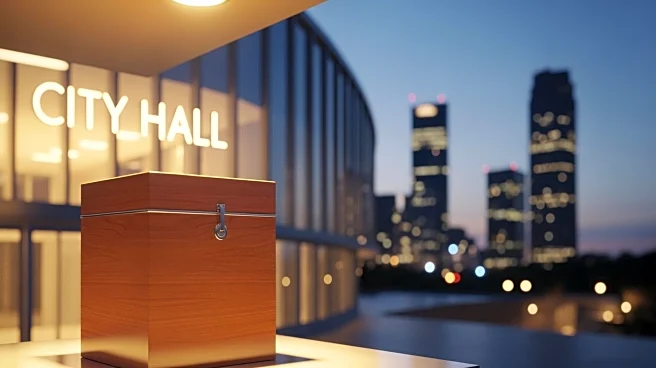Rapid Read • 7 min read
The fashion industry is increasingly adopting upcycling as a sustainable practice to address environmental concerns. Upcycling involves creatively transforming old garments and materials into new, stylish items, thereby reducing textile waste and conserving resources. This approach is gaining popularity as consumers become more conscious of the environmental impact of fast fashion. Upcycling not only reduces the need for virgin materials but also promotes a circular economy by repurposing waste materials. The movement is supported by various fashion designers and brands, who are launching collections made from discarded fabrics and textiles.
AD
Upcycling is crucial in mitigating the environmental impact of the fashion industry, which is one of the largest polluters globally. By reducing textile waste and conserving resources, upcycling contributes to a more sustainable future. It also fosters creativity and individuality, as upcycled garments are often unique and personalized. The growing popularity of upcycling reflects a shift in consumer attitudes towards sustainability, encouraging brands to adopt more ethical production practices. This trend supports local communities and small businesses, promoting economic growth and ethical production in the fashion industry.
As upcycling gains momentum, collaborations between upcycling brands and mainstream fashion labels are expected to increase. This could lead to more innovative collections that challenge traditional production methods. Consumers are likely to continue driving the demand for sustainable fashion, encouraging brands to adopt upcycling practices. The fashion industry may see a shift towards a circular economy, where materials are continuously reused and repurposed, minimizing waste and resource consumption.
Upcycling presents ethical and cultural dimensions by promoting transparency and fair working conditions in the fashion industry. It challenges the traditional linear production model and encourages a more inclusive fashion landscape. As upcycling becomes more mainstream, it may inspire more brands to adopt sustainable practices and promote a circular economy.
AD
More Stories You Might Enjoy










